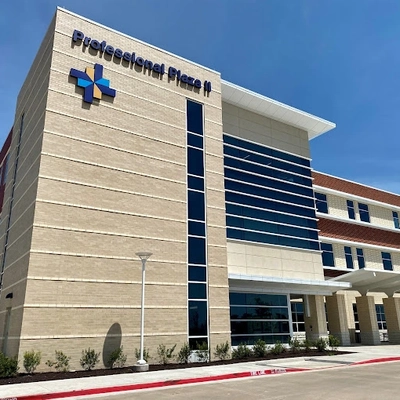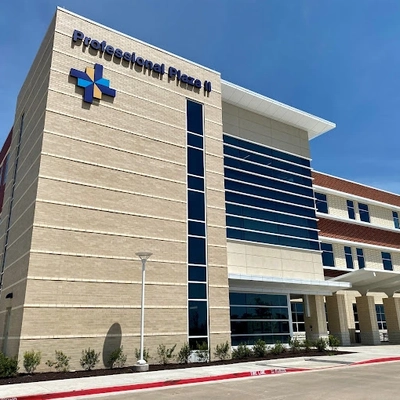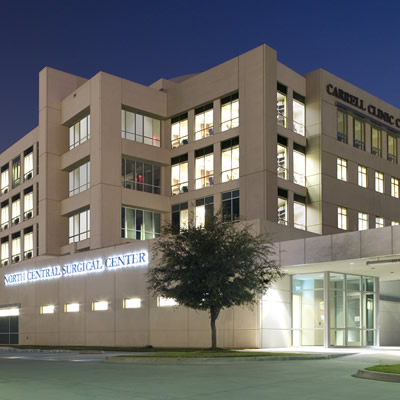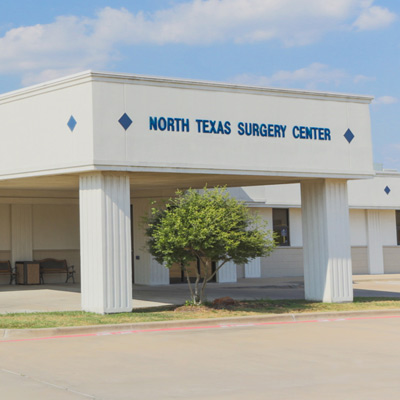What is colon cancer screening?
Colon cancer screening modalities are used to diagnose cancer before you have symptoms. Because colon cancer sometimes doesn’t cause symptoms early on, screenings help catch it sooner, often giving you more treatment options.
The most recommended screening test for colon cancer is a colonoscopy. A colonoscopy not only helps detect cancer but also prevents it. During a colonoscopy screening, your doctor can remove pre-cancerous polyps before they become cancerous.
Why is colon cancer screening so important?
Colon cancer screening is important because it helps detect colorectal cancer in the earliest stages and sometimes can prevent it from ever developing. Colon cancer is the third most common type of cancer diagnosed today, but many of those cases could be prevented with screening.
A person’s lifetime risk of colon cancer is about 3-4%, with more than 100,000 people diagnosed with colon cancer every year. Overall, this number of cases has been steadily decreasing—most likely due to the increased compliance with colon cancer screening guidelines.
When colon cancer is found in its earliest stages—before it spreads to other areas—it is very treatable. The survival rate at five years for early-stage colon cancer is about 90%.
Colon cancer screening guidelines
The U.S. Preventive Services Task Force and American Cancer Society recommend colon cancer screening for all adults starting at age 45. The screening guidelines were updated in 2021 to lower the age to start screening from 50 to 45—as incidence of colon cancer in younger adults has been increasing in recent years.
There are several different colon cancer screening options listed in the guidelines. You should talk with your doctor about the right screening tests for you and how often you should get screened.
It’s also important to note that the ages listed in the general screening guidelines apply to people with an average risk of colon cancer. If you have risk factors such as a strong family history or a condition that puts you more at risk, you should talk to your doctor about starting screenings sooner.
-
Screening for average-risk people
People with an average risk of colon cancer should get routine colon cancer screenings between the ages of 45-75.
Screening options for those with an average risk include stool-based tests that look for signs of cancer or visual tests like a colonoscopy. The type of test you and your doctor choose for colon cancer screening will decide how often you need to get checked.
-
Screening for higher-risk people
When you have a high risk of colon cancer, your care team will recommend different guidelines based on your risk factors. You may need to start screening earlier, have screenings more often or use a specific screening test, usually a colonoscopy.
Talk with your doctor about your screening options if you have any of the following risk factors:
- Previous colon polyps or colon cancer
- A family history of colon cancer or colon polyps, specifically close relatives with these conditions before age 60
- Inflammatory bowel disease, such as ulcerative colitis and Crohn’s disease
- A family or personal history of specific genetic syndromes, such as Lynch syndrome or familial adenomatous polyposis
Detecting colon cancer early — colon cancer screening options
Sometimes, people put off a colon cancer screening because they aren’t aware of all the options available. If you have an average risk, talk with your doctor about the pros and cons of your choices, including stool-based tests, imaging tests and colonoscopies.
A colonoscopy remains the most recommended test because it can detect and prevent colon cancer. But what’s most important is that you talk with your doctor and get screened—no matter the screening option you choose.
If you have a colon cancer screening other than a colonoscopy, abnormal results should be checked using a colonoscopy procedure. You may also need a colonoscopy if you have any signs or symptoms of colon cancer.
Colonoscopy
A colonoscopy uses a small flexible tube with a light and a tiny camera to take a closer look at your colon. During a colonoscopy, your doctor will take pictures of the inside of the colon and may take tissue samples or remove polyps.
This type of colon cancer screening requires bowel prep beforehand, and you'll be asleep during the procedure. A colonoscopy is carried out every ten years in people with no risk factors for colon cancer.
Sigmoidoscopy
A sigmoidoscopy, including flexible sigmoidoscopy, uses a small tube, light and camera like a colonoscopy. However, sigmoidoscopy only looks at the rectum and bottom third of your colon, where colon cancers are more likely to occur.
Sigmoidoscopy is not a common choice for colon cancer screening in the United States because it doesn’t catch cancer higher up in the colon. It requires partial bowel prep and is done every five years.
Virtual colonoscopy (CT colonoscopy)
A virtual colonoscopy is an imaging test that uses CT technology to create images of the colon and look for abnormal spots, such as polyps or cancer. Like a colonoscopy, full bowel prep is still needed, but most people are awake during this imaging procedure. It’s done every five years.
Stool tests
You have a few options if you choose a stool-based colon cancer screening. With stool tests, you collect stool samples from the comfort of your home and then send the samples to a lab for testing. These tests detect signs of colon cancer through blood or DNA in the stool, but they are more likely to miss pre-cancerous polyps than a colonoscopy.
Stool tests for colon cancer screening include:
- Guaiac-based fecal occult blood test (gFOBT): This type of fecal occult blood test is done yearly to detect hidden blood in the stool using a chemical reaction. Usually, you’ll need to collect multiple stool samples for this test and place them on a paper card. You must also follow diet and medication restrictions for a few days beforehand.
- Fecal immunochemical test (FIT): FIT also tests for hidden blood in the stool to help detect colon cancer. With FIT, you collect stool samples and place them in tubes filled with liquid before sending them to the lab. Unlike gFOBT, FIT doesn’t usually require you to make diet or medication changes beforehand.
- Stool DNA test: Along with hidden blood, a stool DNA test also looks for pieces of DNA in the stool that signal cancer or polyps. If you choose to do a stool DNA test, it’s typically done every three years.
Double contrast barium enema (DCBE)
A barium enema is a type of radiologic imaging procedure. During a double contrast barium enema, a liquid containing barium is injected through the rectum into the colon to coat the inside and the contrast is enhanced with the insufflation of air. Then, moving X-ray images, known as fluoroscopy, are taken to view the colon and look for signs of polyps or cancer.
Our colon cancer screening locations near you
We help you get care at a location that fits your needs. We offer several locations for your care, including colon cancer screening options in North and Central Texas.

Baylor Scott & White Advanced Digestive Care
3417 Gaston Ave Ste 1000, Dallas, TX, 75246- Monday: 8:00 am - 5:00 pm
- Tuesday: 8:00 am - 5:00 pm
- Wednesday: 8:00 am - 5:00 pm
- Thursday: 8:00 am - 5:00 pm
- Friday: 8:00 am - 5:00 pm

Baylor Scott & White Ambulatory Endoscopy Center
4708 Alliance Blvd Ste 210, Plano, TX, 75093- Monday: 7:00 am - 3:00 pm
- Tuesday: 7:00 am - 3:00 pm
- Wednesday: 7:00 am - 3:00 pm
- Thursday: 7:00 am - 3:00 pm
- Friday: 7:00 am - 3:00 pm

Baylor Scott & White Center for Esophageal Diseases
3417 Gaston Ave Ste 1000, Dallas, TX, 75246- Monday: 9:00 am - 5:00 pm
- Tuesday: 9:00 am - 5:00 pm
- Wednesday: 9:00 am - 5:00 pm
- Thursday: 9:00 am - 5:00 pm
- Friday: 9:00 am - 1:00 pm

Baylor Scott & White Center for Esophageal Diseases - Sammons Center (Prearranged Appointment)
3410 Worth St Ste 235, Dallas, TX, 75246
Baylor Scott & White Colon and Rectal - Waxahachie
2360 N Interstate 35E Ste 310, Waxahachie, TX, 75165- Monday: 8:00 am - 5:00 pm
- Tuesday: 8:00 am - 5:00 pm
- Wednesday: 8:00 am - 5:00 pm
- Thursday: 8:00 am - 5:00 pm
- Friday: 8:00 am - 5:00 pm

Baylor Scott & White Digestive Diseases - Fort Worth
1250 8th Ave Ste 650, Fort Worth, TX, 76104- Monday: 8:00 am - 5:00 pm
- Tuesday: 8:00 am - 5:00 pm
- Wednesday: 8:00 am - 5:00 pm
- Thursday: 8:00 am - 5:00 pm
- Friday: 8:00 am - 12:00 pm

Baylor Scott & White Hillcrest Colorectal & General Surgery
50 Hillcrest Medical Blvd Ste 105, Waco, TX, 76712- Monday: 8:00 am - 5:00 pm
- Tuesday: 8:00 am - 5:00 pm
- Wednesday: 8:00 am - 5:00 pm
- Thursday: 8:00 am - 5:00 pm
- Friday: 8:00 am - 5:00 pm

Baylor Scott & White North Texas Colon and Rectal Associates - Dallas
3409 Worth St Ste 600, Dallas, TX, 75246- Monday: 8:30 am - 5:00 pm
- Tuesday: 8:30 am - 5:00 pm
- Wednesday: 8:30 am - 5:00 pm
- Thursday: 8:30 am - 5:00 pm
- Friday: 8:30 am - 5:00 pm

Baylor Scott & White North Texas Colon and Rectal Associates - North Garland
7217 Telecom Pkwy Ste 100, Garland, TX, 75044
Baylor Scott & White North Texas Colon and Rectal Associates - Odessa
420 E 6th St Ste 102, Odessa, TX, 79761
Baylor Scott & White North Texas Colon and Rectal Associates - Tyler
1321 S Beckham Ave , Tyler, TX, 75701
Baylor Scott & White Texas Surgical Specialists - Waxahachie
2360 N Interstate 35E Suite 310, Waxahachie, TX, 75165- Monday: 8:00 am - 5:00 pm
- Tuesday: 8:00 am - 5:00 pm
- Wednesday: 8:00 am - 5:00 pm
- Thursday: 8:00 am - 5:00 pm
- Friday: 8:00 am - 5:00 pm

Lonestar Endoscopy Center - Flower Mound
1001 Surrey Ln , Flower Mound, TX, 75022- Monday: 5:00 am - 3:00 pm
- Tuesday: 5:00 am - 3:00 pm
- Wednesday: 5:00 am - 3:00 pm
- Thursday: 5:00 am - 3:00 pm
- Friday: 5:00 am - 3:00 pm

Lonestar Endoscopy Center - Southlake
515 S Nolen Dr , Southlake, TX, 76092- Monday: 5:00 am - 3:00 pm
- Tuesday: 5:00 am - 3:00 pm
- Wednesday: 5:00 am - 3:00 pm
- Thursday: 5:00 am - 3:00 pm
- Friday: 5:00 am - 3:00 pm

North Central Surgical Center Hospital
9301 N Central Expy Ste 100, Dallas, TX, 75231
North Texas Surgery Center
7992 W Virginia Dr , Dallas, TX, 75237- Monday: 6:00 am - 5:00 pm
- Tuesday: 6:00 am - 5:00 pm
- Wednesday: 6:00 am - 5:00 pm
- Thursday: 6:00 am - 5:00 pm
- Friday: 6:00 am - 5:00 pm

Texas Endoscopy - Independence Medical Village
8080 Independence Pkwy Ste 160, Plano, TX, 75025- Monday: 6:00 am - 5:00 pm
- Tuesday: 6:00 am - 5:00 pm
- Wednesday: 6:00 am - 5:00 pm
- Thursday: 6:00 am - 5:00 pm
- Friday: 6:00 am - 5:00 pm

Texas Endoscopy - Parker Rd.
6405 W Parker Rd Ste 370, Plano, TX, 75093- Monday: 6:00 am - 5:00 pm
- Tuesday: 6:00 am - 5:00 pm
- Wednesday: 6:00 am - 5:00 pm
- Thursday: 6:00 am - 5:00 pm
- Friday: 6:00 am - 5:00 pm

Tuscan Surgery Center at Las Colinas
701 Tuscan Dr Ste 100, Irving, TX, 75039- Monday: 6:00 am - 5:00 pm
- Tuesday: 6:00 am - 5:00 pm
- Wednesday: 6:00 am - 5:00 pm
- Thursday: 6:00 am - 5:00 pm
- Friday: 6:00 am - 5:00 pm
Hours of Operation
Hours of Operation
Office Hours
Frequently asked questions
-
When does colon cancer screening start?
Colon cancer screenings should start at age 45 for adults with an average risk. If you have risk factors for colon cancer, you should talk with your doctor about beginning screening earlier.
-
How often should you be screened for colon cancer?
How often you should screen for colon cancer depends on the type of screening you choose. Generally, the guidelines are every ten years for a colonoscopy, every one to three years for stool tests, and every five years for virtual colonoscopy and sigmoidoscopy.
-
When do you stop colon cancer screening?
Based on the U.S. Preventive Services Task Force guidelines, most people stop routine colon cancer screening at age 75. Between 76 and 85, you should talk with your doctor about whether continued screening would benefit you.
-
Is colorectal cancer screening the same as a colonoscopy?
Colonoscopy is one type of colorectal cancer screening. While it is the most recommended, it’s not the only option for colon cancer screening. Other options include stool tests or imaging tests.
-
Is colon cancer screening covered by insurance?
Yes. In most cases, insurance is required to cover routine colon cancer screenings as the screening guidelines recommend. However, there may be fees in certain situations, so talk to your insurance provider to ensure you understand what’s covered.